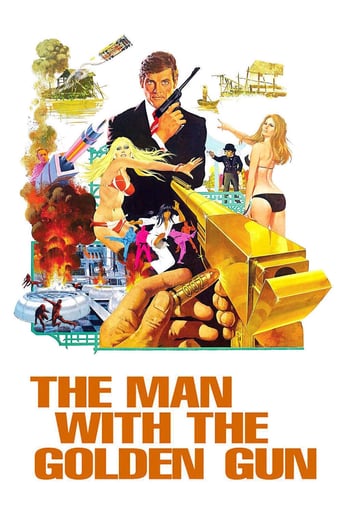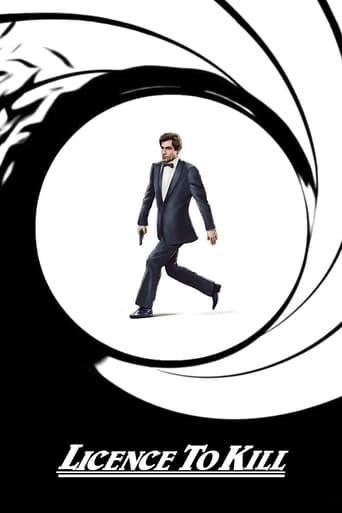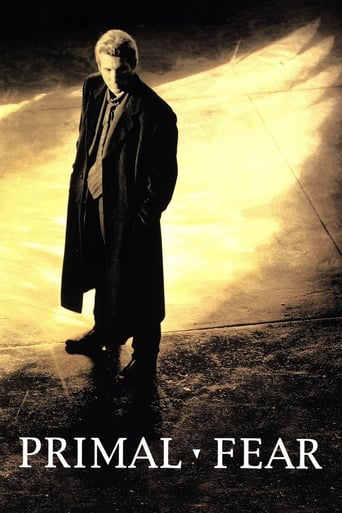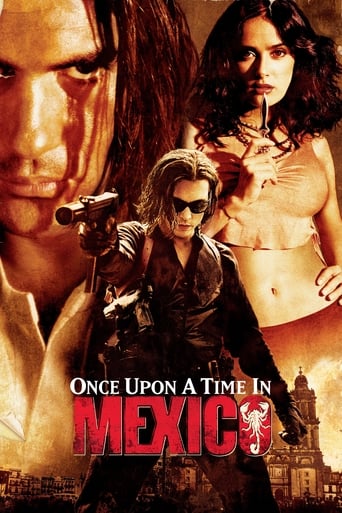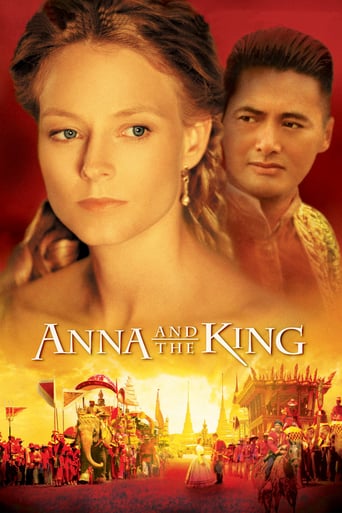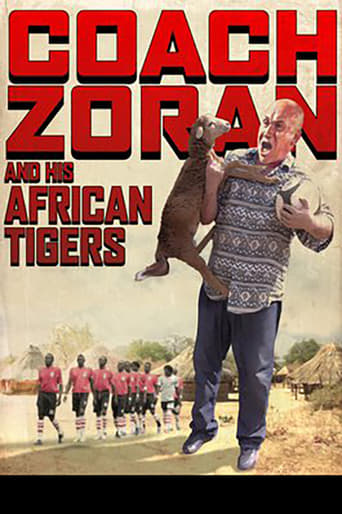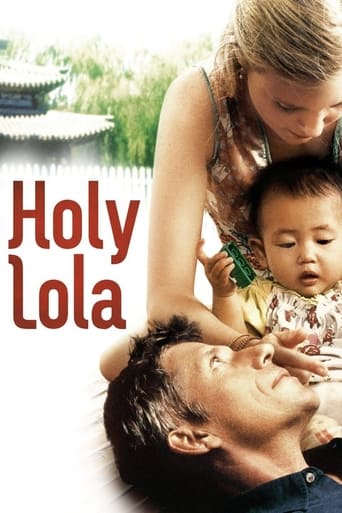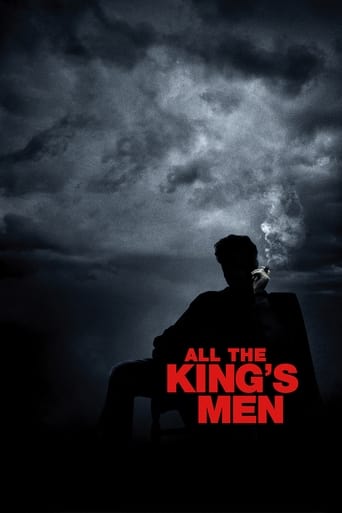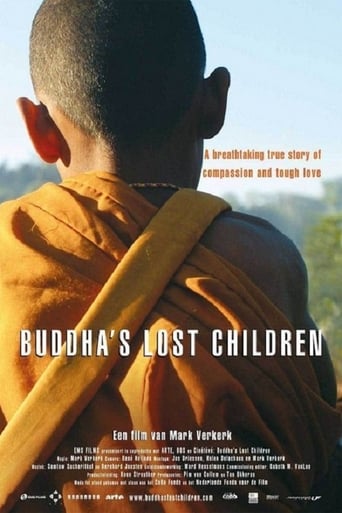

Buddha's Lost Children (2006)
Buddha's Lost Children is a feature-length documentary film about a Thai Buddhist monk who, armed only with his master boxing skills, wages an inspirational battle to help orphaned children, fight drug abuse, and preserve a vanishing way of life.
Watch Trailer
Cast


Similar titles
Reviews
Please don't spend money on this.
it is finally so absorbing because it plays like a lyrical road odyssey that’s also a detective story.
Amazing worth wacthing. So good. Biased but well made with many good points.
I didn’t really have many expectations going into the movie (good or bad), but I actually really enjoyed it. I really liked the characters and the banter between them.
A movie directed by Mark Verkerk describes a life of a monk named Khru Bah who dedicated himself to teaching of children to basic knowledge which life demands. In addition, «Buddha's Lost Children» tells a story of every children becoming a monk. Thru Bah and his novices live in Northern Thailand, the Golden Horse monastery. A films shows a regular life of the monk and his teachings. Thru Bah is the one who spend 15 days and nights to find peace and calm of soul. A death of his close friend followed by a vivid dream made him to be a monk and spread knowledge and experience with the ones who demands it. The film shows how children lost in poor family lives and who are living with no purpose met an opportunity to develop and experience a warm, inner and outer warm of the mind and body. «Buddha's Lost Children» teaches people to good things. Here a monk and the children make a good to their environment: rebuild a temple, share with a knowledge to improve people, help materially to poor families. Also, close link between humans and people is represented through respect to horses. This movie teaches to appreciate everything we have now. A monk's influence to the relationships between the children, their perceptions of life and love let every viewer to rethink about these things. Love is defined from the another side: tough love makes us even stronger to overpower weakness. Besides, appreciation of the current condition is also one of the teaching of the film because it emphasizes harsh and poor conditions of hill tribe people. «Buddha's Lost Children» shares with not only monk's lives, but also teaches us that every difficulty is another opportunity to make a good. The film is definitely must watch, especially for families with children.
Usually I do not expect documentary movies to affect me emotionally, but this film was a good surprise. The director made a great job showing us the insights of Buddhist culture by an example of life and work of a monk called Khru Bah. Boxer in the past, Khru Bah now dedicated his life in religion and helping orphan children by taking them in the monastery and teaching Buddhist religious traditions. I especially liked the way the director focused on children's past, revealing their stories. Most of Khru Bah's followers experienced difficulties in their lives - almost everyone either lost their parents or could no longer be raised and supported by them, but the monk's work gave these children a chance for a better future. Living in the Golden Horse monastery, these children are provided with basic self-care supplies and taught to follow Buddhist customs. Sure, it was not easy for them to adjust to a new place and get along with new people, but Khru Bah and nun's patience and wiliness to help soon gained children's trust. The director provides us with a good opportunity to know what a real life in the monastery looks like. Khru Bah is an example for his pupils to follow, and his actions, his way of solving different kinds of conflicts taking place affect children's view on life, showing them the importance of compassion and support. Thus, we could say that the monastery is like a new home for all these children, and Khru Bah is playing a role of the father, even giving them new names and being strict when the situation asks for it. The setting takes place in the Golden Triangle, which is a border territory in the Northern Thailand known for drug dealing. And again here is something I did not expect to see in the movie - it is a way Khru Bah emphasises the danger of drugs and importance of avoiding them. "How can your village be strong when your bodies are weak and addicted to drugs?", he asks from the citizens of one of the villages they visit. It can be seen that people respect him as they listen to his speech and advice. And when the monk with his pupils start their day visiting villages, the citizens make contributions in the form of food and other necessary stuff, as they believe that by doing this they would improve their karma. Also as Khru Bah and his pupils often move in dangerous regions it is important for children to be able to stand for themselves, so the monk teaches them how to do boxing using his own past experience. I think that this is an important scene to point out because it contradicts the general stereotype about Buddhism being a non-violent religion. Khru Bah shows that it is possible to follow Buddhist religious traditions and develop your physical strength at the same time. And the Buddha himself demonstrated after his experiencing of asceticism that a weak body is no good for the enlightenment. So Khru Bah emphasises the importance of both body purity and strength and clear mind. So the movie was both informative and interesting, and I personally enjoyed watching it. The work of Khru Bah and nun Khun Ead is very important, in my opinion, because they not only teach young children to follow Buddhist religious traditions but most importantly provide a good example of sympathy and compassion and give these children an opportunity for a good life.
This movie certainly provokes a wide variety of emotions - astonishment, respect, appreciation, and remorse. Filmed by Dutch director Mark Verkerk and his team, for a period of one year when they were living together with the Kho Bakh and his sangha, movie provides a viewer with an extremely nuanced depiction of how this outstanding orphanage functions. Scenes of a day-to-day routine of monks, scenes of unusual rituals and customs, scenes of interaction between monks and laymen - offer us to see and understand one of the most interesting culture in the world. Viewing this movie would give a tangible insight into the fundamental philosophy of Buddhism, and provide quite sophisticated point of inquiry into the life of common people living in problematic regions of Thailand. Kho Bakh represent, or at least at some time represented, a quite widespread type of individual in a Thai society. Man working in a Thai boxing, and being just one of the ordinary fighters. But, one day he become wondering about the impermanence of life, and staring from this point life of his, and life of number of other people have changed, and I hope that will yet change. He decided to devote his life to helping others. Changing life of people who are actually in need, changing their attitudes, behaviors, by spreading knowledge and sharing what he has. Story of Kho Bakh is incredibly inspirational in a way that he used to be an ordinary man for a large part of his life, and one day he chose to make his life meaningful. Meaningful not only to himself, but for whole community. Life of the monastery, in my opinion, is very vividly showcased in this documentary. It certainly offers a nuanced perspective on what does Kho Bakh in his new career of monk, what changes does he bring into the society, and what way of living those children living in his orphanage-monastery have. While almost all of the parts of the movie unveil significant portion of information regarding the monastery life, some of the scenes were crucially thought-provoking. For instance, scenes of how Kho Bakh goes into different villages where a significant part of citizens subsist on drug-dealing industry, and tries to share the knowledge that this is a wrong way of living. However, he does not simply explain it to them, but also helps them to undergo this obstacle by providing them jobs, and sometimes even helpful 'presents' that will help them on ways of starting their new lives. Another interesting scene that appeared vibrant to me is when young boys who were one of those villagers that come to one of the Kho Bakh's temples to help monastery to rebuild it were beginning to start a fight. The speech that Kho Bakh, and later a nun of the monastery gave to those men was so emotional, and peculiar in a way that emotions of those men who were treated by monastery's officials were filmed very vividly. By this scene, I think, the influence which presence of this monastery and Kho Bakh on the life of these societies (not including individual cases of boys whose lives are significantly improved by his initiative) can be observed. Presence of this outstanding, I would even say - phenomenal monastery certainly helps people of Thai community. The problems that people living in the region called "Thailand's Golden Triangle" are showcased in this documentary in a very lively way. At some points there I had even experienced a feeling that I was present there with the filming team, and talked with those people. The feeling of sorrow about the conditions in which those people live, and the feeling of appreciation about the changes that Kho Bakh's work bring arise at the same time, and it then evokes a sense of understanding about significance and effectiveness of Buddhism. Stories of Sukh, and other boys that were suffocating from malnutrition that found refuge in Kho Bakh's orphanage is very touching. These stories make one believe in the humankind. While at the beginning the directorate of the movie seemed quite primitive, close to the middle of the movie it becomes apparent that this way of filming is what makes it special. Through combination of everyday scenes from monastery's life and sincere interviews of Kho Bakh and nun the importance of this monastery's existence and its philosophy is explained in the most meaningful, and touching way. The ending of the documentary was like the final stroke that made it even more beautiful. Philosophy of Khu Bakh- that his mission is to teach believe to make choices - is extremely inspiring. I believe that this documentary can make people believe that if someone really wants to improve the living of others, then despite any obstacle that he could face during his way - it is achievable. That being a positive agent changer in a society is not unrealistic, and could be made only by some super-extraordinary individual, but by any man who just chose to do so.
Buddhas Lost Children is a documentary but it watches like a movie. It tells the story of a Thai-boxer becoming a monk called Phra Khru Bah and taking care of orphans in a very poor region in the north of Thailand. Although the story is not always logical to follow because there are jumps in time and space the real story being told here is that of love, dedication and sharing. It may sound soft but when you take the time to watch this documentary you'll find out that life over there is very tough and it takes a lot of creativity and flexibility to take care of the many children Phra Kru Bah has under his care. Watching Buddhas Lost Children brought me into a certain mood that made me reflect on what is really important in life, that's why for me this documentary is a valuable lesson in what life is really about.


